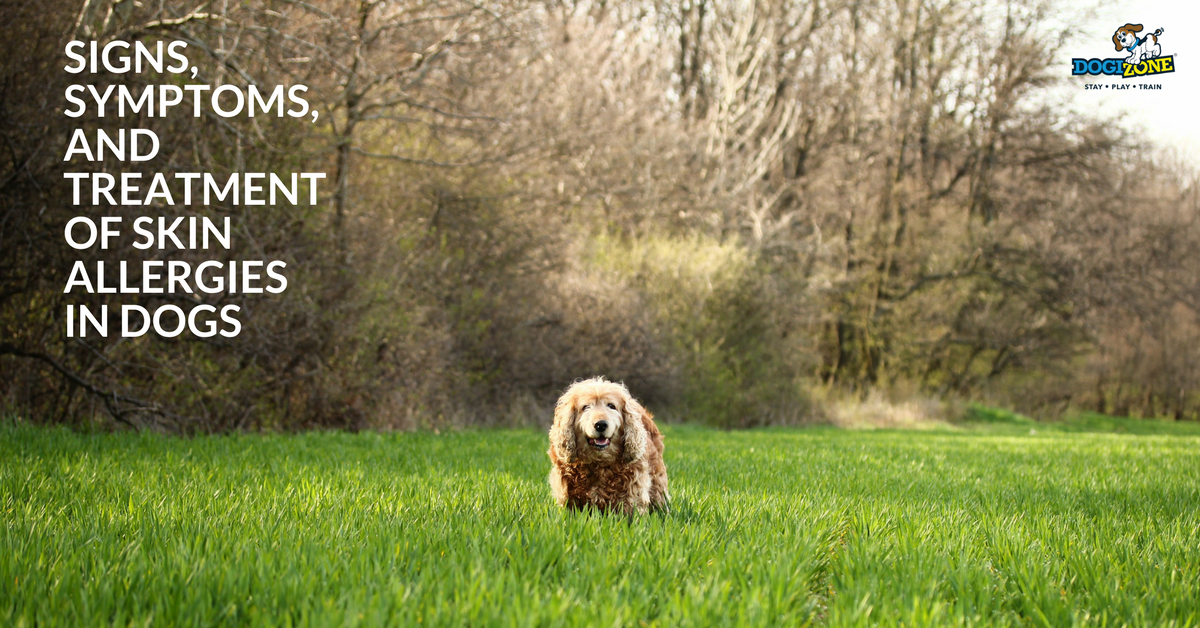Signs, Symptoms, And Treatment Of Skin Allergies in Dogs
Allergy Treatment Tips

Dogs, just like people, can develop allergies. Some dogs have allergies even when they are puppies, while others develop allergies as they age or are exposed to different allergens in their environment.
Chronic skin allergies in dogs, also known as atopic dermatitis, are one of the most common issues for vets. Dogs are often allergic to the same things as people, including dander from other animals, plants, insects, pollen, chemicals, molds, medications, and even specific types of food.
Why Is My Dog Itchy?
Sometimes, what is thought of as a flea problem or just an annoying behavior is actually an allergic reaction. Dogs that are constantly scratching or licking and chewing at their feet, legs or other parts of their body may be responding to an allergy.
Just like people get itchy rashes and even hives, so do dogs. Most dogs with allergies will focus their scratching on their ears, armpits of the front legs, groin area, as well as the eyes and muzzle. Itching of eyes and muzzle is often seen as head rubbing against the ground, furniture, or even against people. Intensive and repetitive scratching is known as pruritus.
It is not uncommon for allergy symptoms to become progressively worse as dogs age. This can include scratching to the point of removing hair and opening up lesions. These lesions are then prone to secondary types of bacterial infections.
Dry Skin Throughout the Year
The early signs of allergies in dogs can look like patches of dry, flaky skin. This can be pinkish to red if the dog has been actively scratching, biting, or licking the area.
In general, once dry skin patches are present, the diagnosis is likely to be atopic dermatitis. This does not go away with oatmeal baths or applications of skin conditioning products, but these options may temporarily address the symptoms without getting to the cause.
Just like people, dogs can be given allergy tests. Often flea saliva is the cause, but it may also be additives or types of foods or the various allergens listed above. Knowing what is causing the reaction can help the dog owner to limit contact or consumption of the problematic allergen.
Allergy Medicines and Home Remedies
Dogs can take antihistamines to reduce the body’s response to the allergens. These are usually given orally and can be used for long periods of time. It is important to use specific medications recommended by your vet, and do not use human medications such as a Benadryl, unless instructed by the vet.
Additionally, oatmeal baths can be very helpful for some dogs, particularly small dogs with short coats where bathing is a practical option. Vitamin E oil and coconut oil can also be applied topically and are very safe for the dog if he or she licks off the oils.
In some cases, oils like olive oil or flaxseed oil can also be added to the dog’s food, with some emerging research showing specific probiotics may also be helpful. However, the key for allergies will be in removing the allergen, not relying on treatments after the body has reacted.

